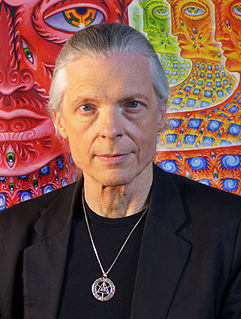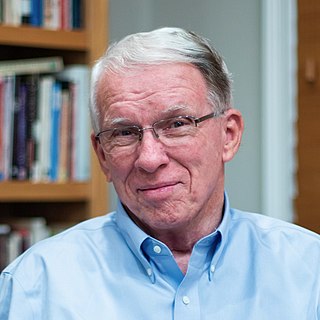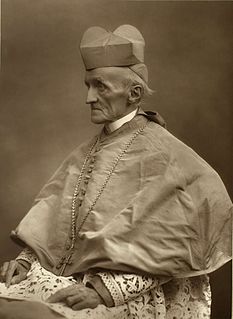A Quote by Stormie Omartian
There are so many things we do not appreciate in our life until we recognize God's love for us in them.
Related Quotes
God does not deal our karma to us as a punishment. Karma is a manifestation of an impersonal law as well as a personal one. The purpose of our bearing our karma is that karma is our teacher. We must learn the lessons of how and why we misused the energy of life. Until that day comes when we recognize the Law of God as a Law of Love, we will probably encounter difficulties. But if we will only hasten that day's coming into our own life, we will recognize that karma is actually grace and beauty and joy. [and love and awareness and hope! -EM]
The love of God again makes us free, for it draws us to set a low value on those things wherein we are subject to others - our wealth, our position, our reputation, and our life - and to set a high value on those things which no man can take from us - our integrity, our righteousness, our love for all men, and our communion with God.
God would love to piece together the shattered fragments of your life. But He is waiting ... graciously waiting until the time is right. Until you are tired of the life you are living ... until you see it for what it really is. Until you are weary of coping ... of taking charge of your own life ... until you realize the mess you are making of it. Until you recognize your need for Him ... He's waiting.
Of course, none of this can happen for us until we give our lives back to God. We cannot know the joy or the life or the freedom of heart I've described until we surrender our lives to Jesus and surrender them totally... We turn, and give ourselves body, soul, and spirit back to God, asking him to cleanse our hearts and make them new. And he does. He gives us a new heart. And he comes to dwell there, in our hearts.
There's never been a nation like the United States, ever. It begins with the principles of our founding documents, principles that recognize that our rights come from God, not from our government - principles that recognize that because all of us are equal in the eyes of our creator, all life is sacred at every stage of life.
There are two gods. The god our teachers teach us about, and the God who teaches us. The god about whom people usually talk, and the God who talks to us. The god we learn to fear, and the God who speaks to us of mercy. The god who is somewhere up on high, and the God who is here in our daily lives. The god who demands punishment, and the God who forgives us our trespasses. The god who threatens us with the torments of Hell, and the God who shows us the true path.
There are two gods. A god who casts us off because of our sins, and a God who calls to us with His love.
We come before God to pray for the missing and the dead, and for those who loved them... Our purpose as a nation is firm, yet our wounds as a people are recent and unhealed and lead us to pray... This world he created is of moral design. Grief and tragedy and hatred are only for a time. Goodness, remembrance, and love have no end, and the Lord of life holds all who die and all who mourn... Neither death nor life nor angels nor principalities, nor powers nor things present nor things to come nor height nor depth can separate us from God's love.
I saw full surely that ere God made us He loved us; which love was never slacked, nor ever shall be. And in this love He hath done all His works; and in this love He hath made all things profitable to us; and in this love our life is everlasting. In our making we had beginning; but the love wherein He made us was in Him from without beginning: in which love we have our beginning. And all this shall we see in God, without end.
Someone has said it is better to appreciate the things you don't own than to own things you don't appreciate. I hope we will have with us a spirit of appreciation for all of the good things we enjoy, all the blessings that we have, many of which have come so easy to us, with very little effort on our part, and yet they are very real and very choice and are truly rich blessings.
God’s love sets us free from the need to seek approval. Knowing that we are loved by God, accepted by God, approved by God, and that we are new creations in Christ empowers us to reject self-rejection and embrace a healthy self-love. Being secure in God’s love for us, our love for Him, and our love for ourselves, prepares us to fulfill the second greatest commandment: To love our neighbor as ourselves.
Praise consists in the love of God, in wonder at the goodness of God, in recognition of the gifts of God, in seeing God in all things He gives us, ay, and even in the things that He refuses to us; so as to see our whole life in the light of God; and seeing this, to bless Him, adore Him, and glorify Him.
We must be able to appreciate and enjoy the places where we tarry and yet pass on without anguish when we are called elsewhere. In our spiritual development we are often required to pull up roots many times and to close many chapters in our lives until we are no longer attached to any material thing and can love all people without any attachment to them.
Critics who perceive the first level of Mann's irony recognize that the second voice is giving us reasons to be dubious about various aspects of Aschenbach's life and work. But many of them don't appreciate the second level of irony, the one exemplified in setting this narrative voice alongside the more sympathetic one, and inviting us to choose.



































